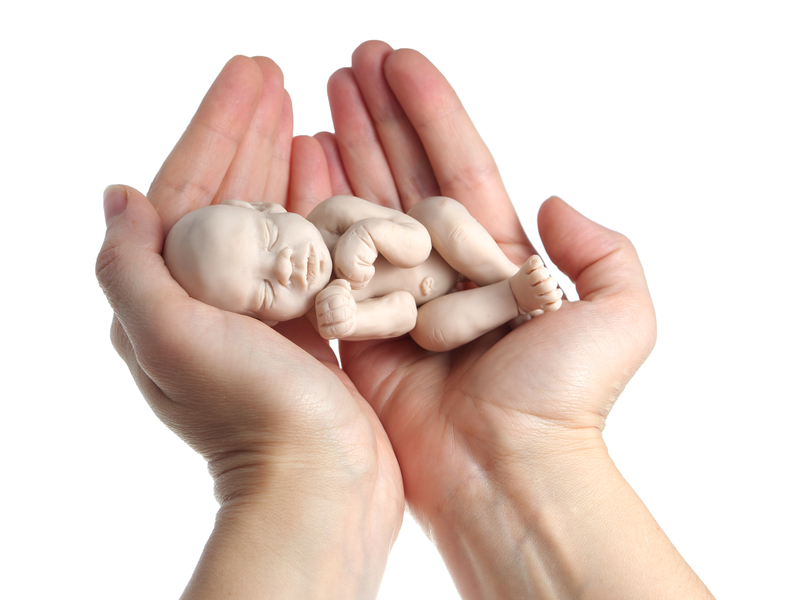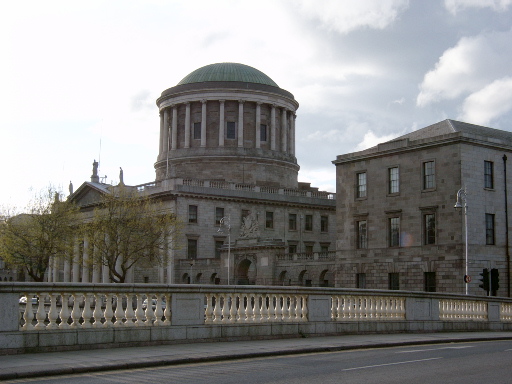
The President of the Circuit Court, Mr Justice Raymond Groarke, ruled yesterday that Good Friday must be treated exactly like any other day for alcoholic licensing so that late-bar licences must be granted as readily as any other day of the year.
A judge in the Dublin District court had refused to grant a Good Friday late bar extension to the Red Cow Inn on the Naas Road, Dublin, which meant a huge back-up in similar applications pending an appeal to the Circuit Court.
The appeal allowed on Friday by Judge Groarke frees publicans to obtain bar extensions in cases where there is no objection by the State authorities, including the Garda, and where all necessary legal proofs are in order.

The Board of Management of a Catholic school can proceed with its High Court challenge against the School’s patron over the sale of the school’s playing fields. Last year the school board was told by Edmund Rice Schools Trust (ERST), the patron body, that it faced being scrapped over its support for a legal challenge to the sale of pitches at the Deansgrange schoool. However, the approval of Minister for Education Richard Bruton is required to dissolve the board, and the request was being examined by the Attorney General. Minister Mary Mitchell O’Connor said on Wednesday that the Attorney General had “given his assurance that there will be no dissolution of the board before the High Court case”. If the board had been dissolved, the High Court challenge would have collapsed. Now instead, the patron faces the prospect of losing control of governance of the school.

A massive majority of GPs say they will not provide abortion pills to women in the first 12 weeks of pregnancy even if it becomes law, according to a survey of family doctors. Nearly seven in 10 of the 497 GPs who voted in a closed doctors’ forum said they would not be involved in medical abortions. A mere 15.7pc of respondents said they would provide the service while 16.1pc were “unsure”. The doctors responding to the survey are among 3,700 GPs who are registered with GPBuddy.ie, the online medical directory designed by GPs for Irish healthcare professionals.
In response, Independent TD Mattie McGrath has called on the Minister for Health, Simon Harris, to postpone the scheduled debate on the repeal of the Eighth Amendment referendum bill and was scathing in his criticism of the Government’s proposal for a GP-led abortion service.
“By any fair standard this is a devastating and potentially fatal blow to a central feature of the government’s and the Joint Committee’s plan on how it wanted to roll out unrestricted abortion access up to 12 weeks.
“It also demonstrates the absurdity of the claims that were made by the Chairperson of the Joint Committee on the Eighth Amendment that they could not find a single GP opposed to the repeal of article 40.3.3.
“If the Minister does indeed decide to proceed with the plan to introduce legislation, it will be a case of him doing so while knowing with clear certainty that it will be practically impossible to implement given the scale of opposition to it by GP’s.
“This is crippling political embarrassment for Minister Harris and all those whose only intent is to foist an unrestricted abortion regime upon the people.
“Serious consideration must now be given to scrapping the proposed debate in light of the inherent unworkability of the proposals that have now been clearly exposed.
“The only other option is for the likes of private, profit driven UK abortion providers with appalling health records to set up shop here. If that is what the Minister wants then he should have the guts to say so,” concluded Deputy McGrath.

Pro-life groups have condemned yesterday’s decision of the Supreme Court that unborn children have no inherent, constitutional rights beyond the right to life explicitly written into the Constitution by the Eighth amendment. Niamh Uí Bhriain, of Save the 8th, said the judgment exposes the frightening reality of the Government’s proposals on abortion, that if the 8th is abolished, then the last remaining constitutional protections enjoyed by unborn children would be abolished along with it. “This is an extreme outcome which the Taoiseach himself rejected as recently as last September, and shows that the proposals go far beyond the so-called ‘middle ground’,” she said. “It exposes the true agenda of the Government proposals: to remove all constitutional protections for unborn children, while masking it as a proposal to protect the rights of women. Such an outcome would give carte blanche to future governments to extend abortion on demand later in pregnancy without any approval from the public”. She concluded that voters “will be repulsed by this stark choice.”
The Pro Life Campaign said the Supreme Court ruling shows the importance of keeping the Eighth Amendment in the Constitution. Pro Life Campaign legal adviser, Professor William Binchy said: “The Supreme Court’s judgment makes it all the more necessary to oppose the Government’s proposal to introduce abortion on demand. The Court has made it clear that unborn babies, up to birth, would have no constitutional protection against the legislation that the Government intends to introduce.”
The Iona institute released a statement saying that the fate of unborn children now lies entirely in the hands of the people of Ireland. Iona spokeswoman, Maria Steen, said: “The Irish people have now become, in effect, the last line of defence in Ireland for the unborn child. It is now exclusively in our hands to decide whether to protect the fundamental right to life of the child in the womb, or to take it away.”
She said it was “extremely sad” that the Government sought to overturn the High Court ruling that the child before birth enjoys more rights than simply the right to life, and, she said, It shows “the overt hostility of the Government towards the unborn child”.

Following a court ruling mandating the removal of the Christian symbol of the cross, the northern French town of Ploërmel has sold a statue of Saint John Paul II to a local Catholic Church so it can be safely displayed there instead.
In a move last October described by French conservative parties as “madness” and “destructive to the country’s history,” France’s top administrative court, the Conseil d’Etat, ordered that the cross atop the monument be removed as it was judged to be “a religious sign or emblem” and thereby contrary to France’s 1905 secularism law.
The mayor of the town has now sold the statue to the local Catholic diocese of Vannes so that the town might “move on” from the situation, noting that he regretted having to sell what was a gift from a Russian artist. The church will set up the statue a few dozen yards from its current position, on a church-owned property of a local Catholic school.

In a radical reversal of a High Court judgment that recognised the full rights and dignity of unborn children, the Supreme Court today confirmed the appeal by the Irish State and the Minister for Justice to abolish all unborn rights apart from the right to life, which is the only right explicitly written into the constitution and therefore beyond the power of the Court to overrule. The Court decided that neither the common law cases, numerous statutory provisions, nor prior Court rulings pre and post Eighth Amendment actually supported “the High Court ‘s conclusions that the unborn possesses inherent constitutionally protected rights other than those expressly provided for in Art. 40.3.3.”
During the appeal, the State insisted the unborn’s only constitutionally protected right is to be born and any other rights become effective only after a live birth. Article 40.3.3, it said, recognises the unborn as a “distinct class” of entities distinct from and not equal to “citizens”, “persons” or “children”.
The Iona Institute said the ruling now meant that the Irish people were the “last line of defence” for the unborn child.

The Catholic Bishops of Ireland have sad that proposals to remove the Eighth Amendment and legislate for abortion would be “a shocking step”, “a manifest injustice” to unborn children and would desensitise us to the value of life in general. “Article 40.3.3 is a declaration of equality and respect for human life. It represents, at the very foundations and substructure of our laws, a conviction that all human life is worth cherishing equally,” the bishops said, whereas repealing the Eighth “would leave unborn children at the mercy of whatever permissive abortion laws might be introduced in Ireland in the future”.

The Norwegian Government has assured campaigners that they are still planning to raise the minimum age of marriage to 18. Currently, 16 and 17-year-olds can apply for special dispensation to marry, but a campaign led by teenagers in Norway has demanded the age be raised to 18 so as to make a point against child-marriages worldwide. “The fight against child marriage is very relevant and an important part of the agenda,” 15-year-old campaigner Ferdinand Aspaas told NRK. “We cannot condemn other countries that allow child marriage if we permit it ourselves,” fellow campaigner Agnes Nordvik, also 15, said to the broadcaster. The move comes amid debates all over Europe regarding the age of social media consent, with some countries such as France and Germany, setting it as high as 16, while others, such as Ireland, are intent on setting it at 13. In global culture, the age of sexual consent is an issue with one of this year’s Best Film Oscar nominees featuring a sexual relationship between a 17 year old minor and an older, 24 year old man. While the film did not win the Best Film category, it did win the Oscar for best adapted screenplay.

The Department of Health will publish a policy paper this week outlining the legislation preferred by the Government if the Eighth Amendment is repealed. The 10-page document will largely follow the recommendations of the Oireachtas Committee on the Eighth Amendment to legislate for abortion “with no specific indication” up to 12 weeks, and for ‘risks to health’ after 12 weeks. In the UK, 97pc of abortions take place on ‘mental health’ grounds.
Taoiseach Leo Varadkar had indicated previously that the latter category would have to be a “serious risk” but, according to the Irish Times, it is understood it will not be specific about the potential risk to a woman’s life or health.
It is also understood two doctors – a gynaecologist and a doctor with speciality in the area concerned – will determine whether a woman’s life, health or mental health is at risk before a termination can be provided beyond 12 weeks. This is the same “restriction” mandated by the permissive UK abortion law which allows 1 in 5 pregnancies end in abortion.

The Supreme Court is due to deliver its judgement tomorrow on an Appeal by the Sate against recognising any rights of the unborn beyond the right to life. According to a legal analyst who has followed the case closely and live-tweeted the public hearings, there are three possible outcomes. First would be a partial upholding of the High Court judgement whereby the Supreme Court asserts that the unborn is distinct from a born child and therefore does not enjoy rights under Article 42A, resulting from the 2011 children’s referendum, but does enjoy some rights beyond life. He thinks this is the most likely outcome.
Another possibility is that there are no circumstances, now or in the future, where the unborn could assert rights outside of Article 40.3.3. This is in essence what the State argued and he thinks it less likely because it would be more illogical and would depart from previous Supreme Court jurisprudence.
The third possibility would be to uphold the High Court decision that the unborn is a child and enjoys all the rights of a child, except those rights which necessarily require a child to already be born before they can be enjoyed. While the Law Library expert thinks this would be the most rational outcome, he also sees it as the least likely.